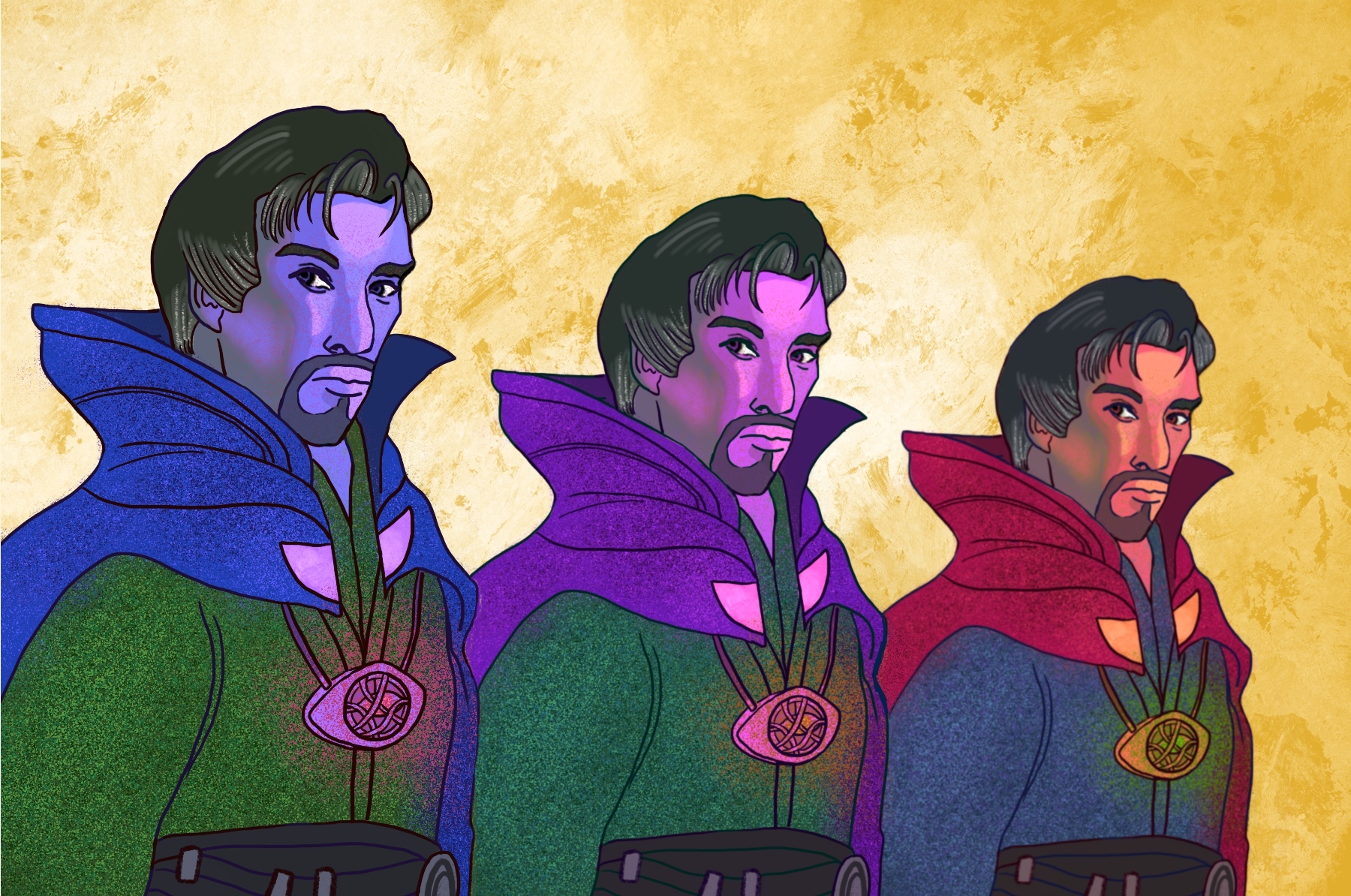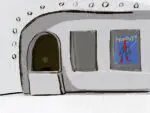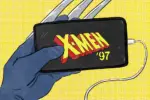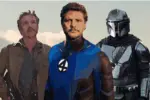A billionaire inventor, a green giant and… a magician? If there is anything we can get out of watching Marvel films, it is that anybody can be a hero, no matter how “strange” they may seem. As in the real world, everyone considers themselves the hero of their story. The 2016 film “Doctor Strange” introduced people to a new hero, Stephen Strange — more famously known as Doctor Strange. Famed horror director Scott Derrickson gave Marvel fans something they had never seen before, as the film revolved around a mystical-based hero.
To recap, the movie follows the aforementioned Strange, an acclaimed but arrogant neurosurgeon who loses his ability to operate due to a car accident. Desperate, Strange seeks out any possible method to repair his injured hands, which ultimately leads him to the Ancient One, a mystical figure who has the ability to access other realms and dimensions.
Strange’s journey eventually ends with him wielding the almighty Eye of Agamotto and defeating the villainous Kaecillius, ultimately becoming the sorcerer known as Doctor Strange.
The film was lauded for its psychedelic, surrealistic and almost disorienting special effects, which superbly complemented the magic aspect of the film.
Doctor Strange has become a key player in the Marvel Cinematic Universe (MCU) since his 2016 movie debut. He has been featured in other Marvel films, such as “Thor: Ragnarok,” “Avengers: Infinity War” and, most recently, “Avengers: Endgame.”
“Avengers: Endgame” (2019) and “Spider-Man: Far from Home” (2019) marked the end of the Infinity Saga phase of the MCU. With some of the most popular heroes gone — including Iron Man, Captain America and Black Widow — new stories and arcs will emerge, creating a new era in the MCU. One of Marvel’s biggest opportunities is the sequel to “Doctor Strange.”
In June 2018, Marvel fans found out that there would indeed be a sequel to “Doctor Strange,” but it was not until the following year at San Diego Comic-Con that its title was revealed: “Doctor Strange in the Multiverse of Madness.”
Sam Raimi, famous for directing the original “Spider-Man” trilogy, was announced in February of 2020 to replace Derrickson as director, with Derrickson relegated to executive producer. Marvel producer Kevin Feige also boasts that the film will introduce horror sequences into the MCU, which will be interesting to explore, as past Marvel films have leaned toward a more family-friendly approach.
While no plot details have been announced by Raimi, the film will be focusing on the multiverse, as the title suggests. The word “multiverse,” used by comic book companies like Marvel and DC, refers to the collection of alternate universes within comics.
A multiverse allows storylines to be told that would otherwise contradict each other. With Doctor Strange’s abilities to enter other dimensions, it would make sense that he would be the character to introduce a live-action multiverse to the big screen.
The use of the multiverse has gotten Marvel fans excited, as it could lead to endless possibilities in this new phase of the MCU.
For one, the multiverse is a possible way for Marvel to finally bring the Fantastic Four into the MCU. While there have been three main “Fantastic Four” films, there is no relation among them and the MCU, as they were produced by 20th Century rather than Marvel. Due to the apparent failures of the three 20th Century-produced films, fans have been hoping that Marvel will take them on and do them justice.
The Fantastic Four being in the MCU would be interesting; not only are they an actual family of superheroes, but they are also characterized in most comic books as celebrities. Like Tony Stark, the “Four,” consisting of Reed Richards, Sue Storm, Johnny Storm and Ben Grimm, do not conceal their identities from the public.
Their introduction could also lead to the appearance of one of their main antagonists in the MCU, Doctor Doom. Doom has the potential to be one of the most powerful villains in the MCU, possessing the technological expertise of Iron Man and the mystical powers of Doctor Strange. Characterized in comic books as the monarch of the fictional nation of Latveria, he has the potential to be more than just a single-movie villain, an overarching foe to all heroes in the universe — possibly more dangerous than Thanos was in the previous two “Avengers” movies.
Another group of heroes the multiverse could possibly introduce to the MCU is the X-Men. Like the Fantastic Four, the X-Men also had their own film franchise, which spanned over the past two decades. It was comprised of a mix of both good and not-so-good films.
In contrast to the heroes we know from the MCU, the characters in X-Men did not gain their powers later in life or due to technologies; they were born with them and refer to themselves as mutants.
The mutants of the X-Men series have been portrayed in the comic books as outcasts due to the public’s bigotry against them. One of the most important characters of the X-Men universe, Professor Charles Xavier, created a school specifically for mutants to learn how to hone their abilities and coexist with humans.
The X-Men would be an X-cellent (last pun, I promise) addition to the MCU because many X-Men comic book storylines have involved prominent social issues, such as racism, diversity, genocide and religion. To illustrate, the mutants versus humans aspect of the X-Men could be seen as an exaggerated reflection of the real-world troubles minorities face in the United States.
Not only could the X-Men’s introduction into the MCU provide viewers with real-life conflict, but also conflict with current Marvel heroes. The studio could also bring one of their most commercially successful storylines, “Avengers vs. X-Men,” to the big screen. The series follows the two biggest superhero factions as they go to war with one another over the dangerous entity known as the Phoenix Force.
The heroes of the MCU are no strangers to new threats, but as new dangers emerge, they will need all the help they can get. As shown in “Avengers: Endgame,” there is no such thing as having too many superheroes. With the introduction of the multiverse in the “Doctor Strange” sequel, audiences should not be surprised when they see new faces in future Marvel films. After all, they may ultimately become key fixtures in the universe.

















